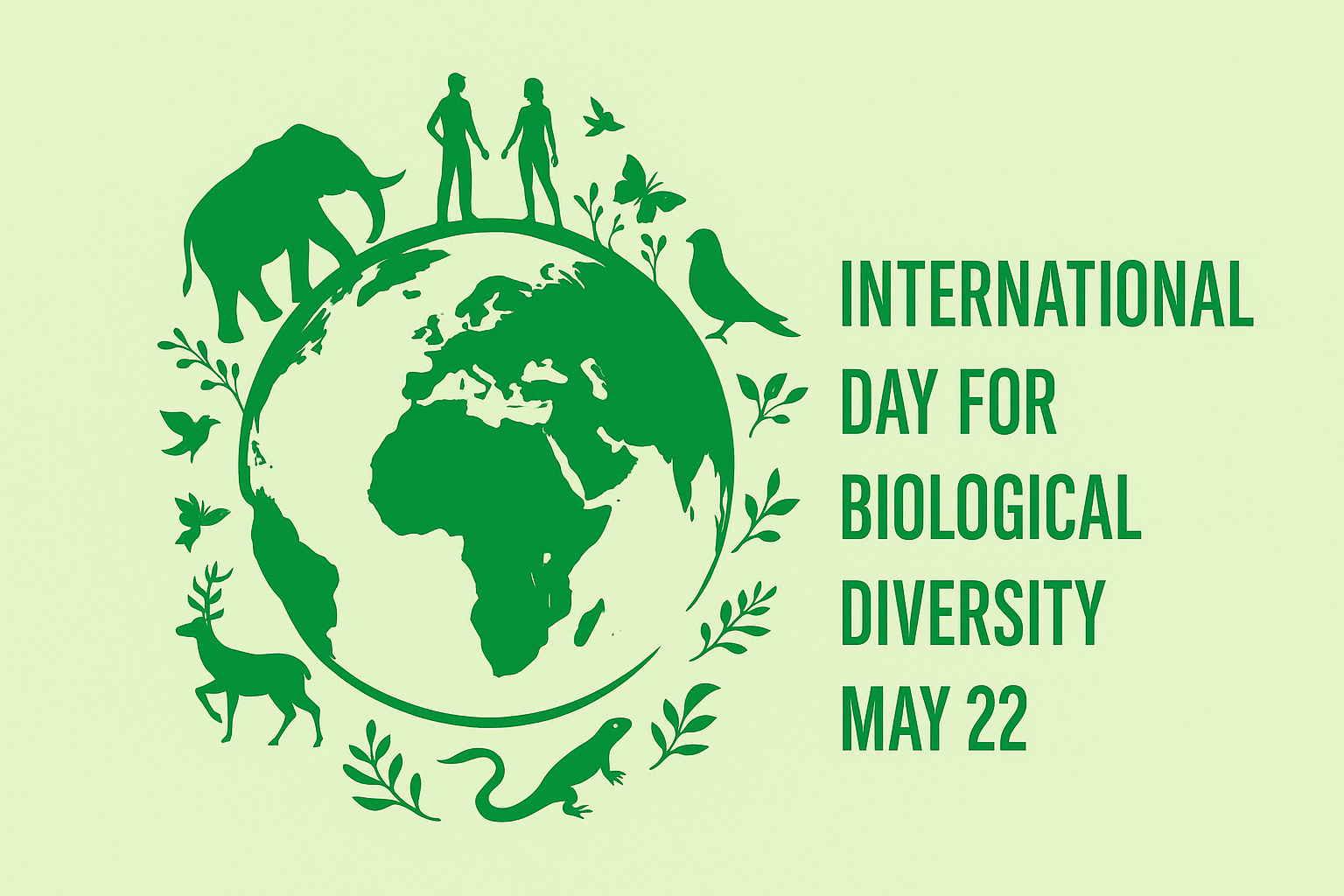Harmony with Nature: India Marks International Day for Biological Diversity 2025

May 22, 2025
As the world observes the International Day for Biological Diversity (IDB) on May 22, 2025, India, a megadiverse nation, reflects on its critical role in conserving the planet's rich tapestry of life. This year's global theme, "Harmony with nature and sustainable development," resonates deeply with India's longstanding cultural ethos of living in consonance with the natural world and its ongoing efforts to integrate biodiversity conservation with sustainable development goals.
The United Nations proclaimed May 22 as IDB to increase understanding and awareness of biodiversity issues. The date commemorates the adoption of the text of the Convention on Biological Diversity (CBD) in 1992. The 2025 theme underscores the intrinsic link between the health of our ecosystems and the well-being of humanity, urging a balanced approach where development does not come at the cost of ecological integrity.
India's Biodiversity: A National Treasure and Global Responsibility
India's commitment to preserving its biological diversity is both a national priority and a global responsibility. Here's a look at why this day holds particular significance for the country:
A Megadiverse Nation: India is one of the 17 megadiverse countries in the world, harboring nearly 7-8% of all recorded species, including over 45,000 species of plants and 91,000 species of animals. It boasts four of the 36 global biodiversity hotspots: the Himalayas, Western Ghats, Indo-Burma region, and Sundaland.
Legislative Framework: India has a robust legal framework for biodiversity conservation, notably the Biological Diversity Act, 2002. This act aims to conserve biological diversity, promote its sustainable use, and ensure fair and equitable sharing of benefits arising from the use of biological resources and traditional knowledge.
National Policies and Action Plans: The country has formulated National Biodiversity Action Plans (NBAPs) that align with global targets, such as the Kunming-Montreal Global Biodiversity Framework. These plans emphasize ecosystem-based approaches, species recovery programs, and mainstreaming biodiversity into various developmental sectors.
Conservation Successes and Ongoing Efforts:
Project Tiger: Launched in 1973, this flagship program has been instrumental in increasing the population of tigers and protecting their habitats.
Project Elephant: Initiated in 1992, it aims to protect elephants, their habitats, and corridors, and mitigate human-elephant conflict.
Species Recovery Programs: Targeted programs are in place for several critically endangered species.
Protected Area Network: India has a vast network of national parks, wildlife sanctuaries, conservation reserves, and community reserves covering a significant percentage of its geographical area.
Community Participation: There is a growing emphasis on involving local communities in conservation efforts through Biodiversity Management Committees (BMCs) at the local level, empowering them to conserve and sustainably utilize local biodiversity.
Focus on Traditional Knowledge: India recognizes the importance of traditional knowledge associated with biological resources and has provisions to protect this knowledge and ensure benefit-sharing with local communities.
Corporate India: Embracing Biodiversity for a Sustainable Future
Recognizing that businesses have a significant role to play, several Indian companies and brands are increasingly integrating biodiversity conservation into their corporate social responsibility (CSR) and sustainability strategies. These initiatives often go beyond mere compliance, aiming to create a positive impact on ecosystems and local communities.
Here are a few examples:
Tata Group:
Tata Power: Committed to "no net loss of biodiversity" by 2030, Tata Power is involved in extensive afforestation through its "GhanVan" project in the Western Ghats, mangrove conservation in coastal areas, orchid conservation, and initiatives like "Gaja Sanrakshana" for elephant protection near its operational sites. They focus on creating biodiversity action plans for their sites based on ecological priorities.
Tata Steel: A pioneer in this domain, Tata Steel adopted its biodiversity policy in 2016, aiming for "no net loss" of biodiversity. The company is focused on developing Biodiversity Management Plans for all its operational sites and aspires to be a leader in Nature-based Solutions (NbS) in India by 2030. Their efforts include habitat restoration and supporting local ecosystems around their manufacturing plants and mining areas.
ITC Limited:
ITC has an extensive biodiversity conservation program focusing on reviving ecosystem diversity and the services they provide to agriculture. Their initiatives include promoting sustainable agricultural practices, achieving Forest Stewardship Council® (FSC®) Forest Management (FM) certification for its plantations, mangrove conservation projects in Andhra Pradesh, and collaborating with organizations like the International Union for Conservation of Nature (IUCN) to develop templates for "Sustainable Agriscapes."
Other Corporate Initiatives:
Several other Indian companies are also stepping up, investing in afforestation drives, watershed management, conservation of endangered species, and promoting sustainable sourcing of raw materials. The Companies Act, 2013, which mandates CSR for certain companies, has also provided an impetus for businesses to contribute to environmental sustainability, including biodiversity conservation. However, reports indicate that there is still significant potential to increase corporate funding towards biodiversity projects.
The Path Forward: Harmony and Action
The International Day for Biological Diversity 2025 serves as a reminder that the future of humanity is inextricably linked to the health of our planet's ecosystems. For India, with its rich biodiversity and significant population dependent on natural resources, the theme "Harmony with nature and sustainable development" is not just a slogan but a guiding principle for policy, action, and collective responsibility. Continued efforts from the government, businesses, and civil society are crucial to ensure that India's unique biological heritage is preserved for generations to come, while simultaneously fostering inclusive and sustainable development.
Tags:





